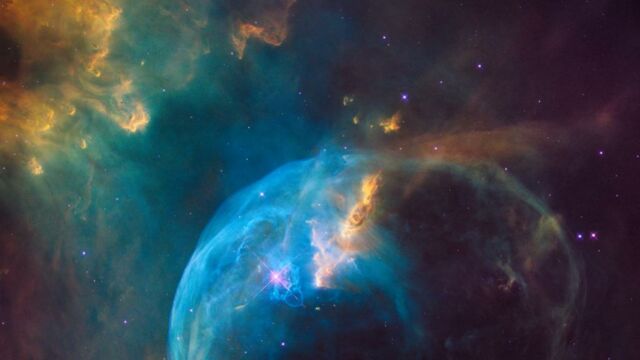On February 18, NASA publishes a photograph of unearthly beauty taken from orbit on their website. Three galaxies have collided and are destroying each other as viewed in the Hubble telescope.
Discover our latest podcast
A rather regular occurrence
Arp 194 (ou UGC 6945) est un groupe de 3 galaxies en fusion.
— 🚀 Astro-Geek 🚀 (@Astro_Geek2) September 16, 2021
La galaxie inférieure a traversé la galaxie supérieure créant ainsi un flux de gaz dans lequel de jeunes étoiles naissent.
La fusion sera terminée dans environ 1 milliard d'année.
CREDIT : NASA / HUBBLE pic.twitter.com/e6EYwGUaVx
A galaxy merger is a massive space collision in which the three galaxies in the image attract and gradually destroy owing to the build-up of their respective gravitational forces. According to Ulyces, such mergers are typical and give all giant galaxies their size, including our own—the Milky Way.
While galactic mergers are remarkable, if not terrifying, they should be seen as a beneficial occurrence since they generate more than they destroy. The galactic mergers allow us to understand more about our Milky Way's history. In the last 12 billion years, our galaxy has eaten more than a dozen other galaxies, according to scientists.
Read more:
⋙ Signs of first ever planet found outside Milky Way galaxy
⋙ NASA: Latest mission has found evidence that could prove life on Mars
⋙ Space: 6 mysterious objects that exist in the solar system
A star is born
The creation of new stars has arisen from a 'sea of matter' emerging at the galaxy's centre in this scenario. The gas from the three galaxies collides and condenses. The fusion will leave most of the other stars in the involved galaxies undamaged.
The massive 'tug of war' between the three galaxies would alter the orbits of many of these stars, but collisions are extremely unlikely due to the vast distance between them.
In the next 4.5 billion years, a collision with our neighbouring galaxy Andromeda is also predicted. According to NASA, the meltdown will irreversibly alter Earth's destiny while leaving the solar system intact. It is improbable, though, that we will witness the phenomena.















